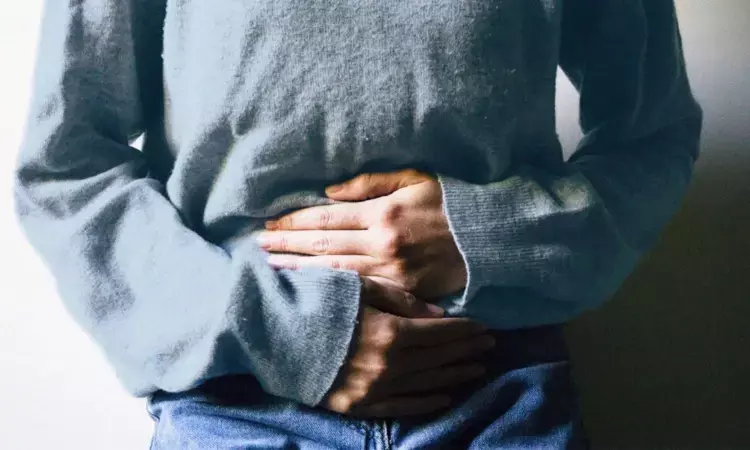- Home
- Medical news & Guidelines
- Anesthesiology
- Cardiology and CTVS
- Critical Care
- Dentistry
- Dermatology
- Diabetes and Endocrinology
- ENT
- Gastroenterology
- Medicine
- Nephrology
- Neurology
- Obstretics-Gynaecology
- Oncology
- Ophthalmology
- Orthopaedics
- Pediatrics-Neonatology
- Psychiatry
- Pulmonology
- Radiology
- Surgery
- Urology
- Laboratory Medicine
- Diet
- Nursing
- Paramedical
- Physiotherapy
- Health news
- Fact Check
- Bone Health Fact Check
- Brain Health Fact Check
- Cancer Related Fact Check
- Child Care Fact Check
- Dental and oral health fact check
- Diabetes and metabolic health fact check
- Diet and Nutrition Fact Check
- Eye and ENT Care Fact Check
- Fitness fact check
- Gut health fact check
- Heart health fact check
- Kidney health fact check
- Medical education fact check
- Men's health fact check
- Respiratory fact check
- Skin and hair care fact check
- Vaccine and Immunization fact check
- Women's health fact check
- AYUSH
- State News
- Andaman and Nicobar Islands
- Andhra Pradesh
- Arunachal Pradesh
- Assam
- Bihar
- Chandigarh
- Chattisgarh
- Dadra and Nagar Haveli
- Daman and Diu
- Delhi
- Goa
- Gujarat
- Haryana
- Himachal Pradesh
- Jammu & Kashmir
- Jharkhand
- Karnataka
- Kerala
- Ladakh
- Lakshadweep
- Madhya Pradesh
- Maharashtra
- Manipur
- Meghalaya
- Mizoram
- Nagaland
- Odisha
- Puducherry
- Punjab
- Rajasthan
- Sikkim
- Tamil Nadu
- Telangana
- Tripura
- Uttar Pradesh
- Uttrakhand
- West Bengal
- Medical Education
- Industry
Empagliflozin Use Leads to Rare Case of Emphysematous Cystitis in Non-Diabetic Patient: Case Study

Malta: A recent case study published in Cureus Journal has described a rare medical case in which the use of empagliflozin, a medication typically prescribed for managing type 2 diabetes (T2D), has been linked to the development of emphysematous cystitis in a non-diabetic patient. Emphysematous cystitis (EC) is a severe and uncommon urinary tract infection characterized by gas within the bladder wall and lumen. It is predominantly seen in diabetic patients.
Empagliflozin belongs to a class of medications known as sodium-glucose cotransporter-2 (SGLT-2) inhibitors, which work by increasing glucose excretion through the urine. While typically used to lower blood sugar levels in patients with diabetes, these drugs have also been associated with various side effects, including urinary tract infections.
Emphysematous cystitis poses a complex and potentially life-threatening urinary tract infection characterized by the accumulation of gas within the bladder walls and surrounding tissues. The exact pathophysiology of this condition remains poorly understood, though it is often linked to facultative anaerobic microorganisms. While emphysematous cystitis is most commonly seen in individuals with diabetes, it's important to note that non-diabetic patients can also be affected, often due to various underlying risk factors, as detailed below.
Notably absent in medical literature are reported cases of emphysematous cystitis associated with empagliflozin use in non-diabetic patients with heart failure and reduced ejection fraction. The unique and unprecedented situation highlights the significance of the case study, which aims to explore this unexplored area and provide valuable insights into the management and understanding of emphysematous cystitis in non-diabetic patients with diverse clinical profiles.
The case concerns an 83-year-old non-diabetic male with end-stage heart failure who presented with symptoms of EC after being administered empagliflozin.
The etiology, diagnostic techniques, potential risk factors, and prospective management strategies were examined. Additionally, the possible influence of the patient's comorbidities, along with the SGLT2 inhibitor's mechanism of action, was postulated as the primary cause.
Although the patient does not have diabetes, his current treatment regimen for heart failure and his diagnosis, especially considering frailty and advanced age, create conditions that could potentially lead to the development of emphysematous cystitis, the study stated.
The researchers suggested that a combination of glycosuria due to SGLT2 inhibitors' use could have set the stage for the mentioned facultative organisms to colonize the bladder.
They explained, "Colonization could lead to anaerobic respiration and fermentation, producing carbon dioxide (CO2) and other gases, which then accumulate in the bladder, culminating in the observed disease manifestation."
In conclusion, The atypical presentation indicates a potential association between empagliflozin and emphysematous cystitis (EC) in non-diabetic patients with heart failure, a correlation not previously documented in medical literature. This underscores the critical need for careful monitoring and additional research in this field.
Reference:
Busuttil N, Khalaf R, Galea I, et al. (May 27, 2024) A Case Study of Emphysematous Cystitis in a Non-diabetic Patient Following Empagliflozin Use: An Uncommon Presentation. Cureus 16(5): e61150. doi:10.7759/cureus.61150
Dr Kamal Kant Kohli-MBBS, DTCD- a chest specialist with more than 30 years of practice and a flair for writing clinical articles, Dr Kamal Kant Kohli joined Medical Dialogues as a Chief Editor of Medical News. Besides writing articles, as an editor, he proofreads and verifies all the medical content published on Medical Dialogues including those coming from journals, studies,medical conferences,guidelines etc. Email: drkohli@medicaldialogues.in. Contact no. 011-43720751


